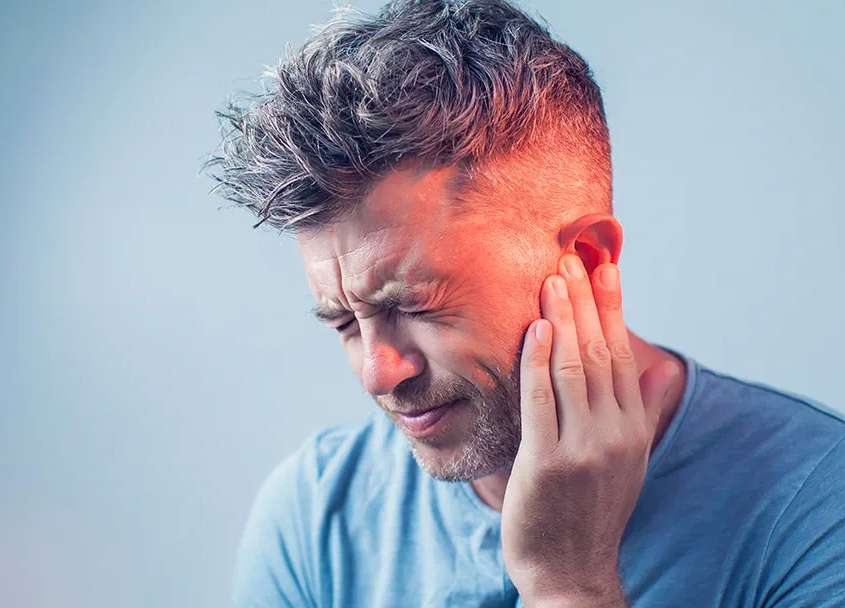Your Hearing
Hearing is one of our 5 senses and is crucial in keeping us safe and socially connected to our family, friends and the community.
Research has shown that hearing loss can lead to reduced income earning potential, depression, isolation and a variety of physical ailments.
The good news is that in most cases, hearing loss is completely preventable. The key is taking proactive measures to protect your ears and monitor your hearing regularly with a hearing test.

How Can I Protect My Ears?
Noise is the most common cause of hearing loss, tinnitus (ringing in the ears or head) and hyperacusis (sound intolerance).
It is important to know when noise can damage your hearing. A rule of thumb is that if you cannot hear a person at one arm’s length away, you should be wearing earplugs. Some common noise hazards are lawn mowing, attending music concerts, and aerobic classes.
Today almost everyone owns an iPod or MP3 player. These personal listening devices are a wonderful way of enjoying music; however, playing music too loud can impact your ability to enjoy music later in life. People often don’t realize how loud the volume is when they are in a noisy area such as on a subway or walking down a busy street. If others can hear your music then it is too loud. One simple solution is to invest in noise cancelling headphones to block the noise around you, keeping your volume at a safe level.
If you work around loud equipment or are a musician, ear protection is crucial.
Book an appointment with us to find the best solution for you to protect your ears.
Is Ringing in the Ears Normal?
The short answer is YES … to a certain extent.
Tinnitus, pronounced as TIN-i-tus or Tin-I-tus, is the term used to describe a sound heard in the ears or head that has no external source. It has been described in many ways, such as a ringing, buzzing, hissing, cricket chirping, or pumping sound.
An early study by Morris Heller and Moe Bergman study (1953) revealed that we all have tinnitus, and that it is essentially a physiological noise from our brain. Most of us do not hear it because our ears naturally tune it out.
Tinnitus becomes problematic when it is heard and associated with a negative emotion, such as fear or annoyance. This emotion heightens our brain’s awareness of the sound and as a result makes it louder than it really is, if measured.
Tinnitus can arise from medical conditions such as hypertension, acoustic neuroma, thyroid disease, vascular disorder, TMJ disorder, ear infection, impacted cerumen, nutritional deficiency, an aneurysm, multiple sclerosis, etc. Certain prescription and non-prescription drugs list tinnitus as a potential side effect. However, the most common cause of tinnitus is excessive noise exposure.
See “How Can I Protect My Ears?” for more important information.
Tinnitus can significantly impact a person’s quality of life. It is most noticeable in quiet environments and thus the most common complaint is its effect on sleep. Individuals have trouble both falling asleep and staying asleep. Lack of sleep can affect a person emotionally, psychologically and physically, making them unable to function effectively on a day-to-day basis.
The good news is that something can be done to help. Our Doctor of Audiology is one of two Audiologists in Ontario with a post graduate certificate in the Advanced Studies of Tinnitus and Hyperacusis. She uses evidence-based literature and personal experience to help guide her assessment and treatment of this hearing-related disorder.
According to the Tinnitus Association of Canada, as many as 360,000 Canadians suffer from annoying tinnitus. Of those, approximately 150,000 Canadians experience a degree of tinnitus that significantly affects their quality of life.
If you or someone you know suffers with tinnitus, please call us to book a tinnitus consultation today 289-963-1512.
Why Do Noises Bother or Annoy Some People?
Hyperacusis is the term used to describe an intolerance or extreme annoyance to moderately loud sounds. Common everyday sounds, often usually sudden high pitch noises, are perceived as too loud. Some examples of these trigger sounds are alarms and sirens, bus brakes, vacuum cleaner, clapping, etc.
Like Tinnitus, hyperacusis is often triggered by a loud sound and significantly impacts an individual’s quality of life.
Almost half of the individuals with tinnitus will also have hyperacusis. See “Is Ringing in the Ears Normal?” for more important information.
Two other types of sound intolerance conditions are misophonia, an intense negative reaction to soft repetitive common sounds such as chewing, and phonophobia that is a fear of sounds. Most people who suffer from hyperacusis develop phonophobia rapidly if not treated.
If you or someone you know is affected by sound intolerance issues please ask them to call us 289-963-1512 and book a hyperacusis consultation. We can help!
How Do I Hear Sounds?
Our ear is a fascinating and complex sensory organ made up of three parts – the outer, middle and inner ear.
Objects in our environment make noise by disturbing air molecules, creating sound waves. The sound waves are sensed by our ears and directed into our ear canals. The sound wave vibrates our eardrum at the end of the ear canal and moves a chain of 3 bones on the other side of the eardrum, in our middle ear space. The bones transfer the energy by beating against the round window of our sensory organ, the cochlea, in our inner ear space.
The cochlea is filled with fluid and lined with hair cells. The fluid moves like a wave, as the round window of the cochlea is vibrated and stimulates certain hair cells. The stimulated hair cells are activated and send a bio-electrical signal to the connected auditory nerves. These nerves send the signal up to the hearing centre (auditory cortex) of your brain. Your brain interprets the signal by intensity and pitch and compares it to previous experiences of the sound.
How Do I Interpret My Audiogram?
An audiogram is a graph where your hearing thresholds (the softest sound you can hear) are recorded. On the x-axis (along the top or bottom) are frequencies from 250 to 12,000 hertz. These are the frequencies where speech occurs.
The y-axis, on the right or left side of the graph, is the intensity (loudness) scale in decibels.
A dot is placed under each frequency at the decibel where the pitch is just noticeable.
If you were to connect the dots across the frequencies and overlap it with an audiogram of familiar sounds, all the sounds above the line would be inaudible.
Where Do I Go for Help?
There is often confusion about who is the best person to see for help for ear-related problems. Most people will go to their family physician with a concern. Your family physician can help you find the right professional, but it also helps if you are informed.
Here are the various professionals in the hearing industry and their roles:
Hearing Instrument Specialist (HIS)
The HIS holds a college diploma and is trained in performing hearing tests and dispensing hearing aids. They cannot prescribe hearing aids.
Otolaryngologist (ENT)
The ENT is a medical specialist dealing with the ear, nose and throat. They are often referred to as the “Ear” doctor. They provide medical and surgical treatment options when warranted. They often have a long waiting list.
Audiologist
Audiologists holds a Master’s degree. They assess, diagnose and treat hearing loss, hearing-related conditions and balance disorders. They are the hearing expert in the field. Some Audiologists will also have a Doctorate degree. An Audiologist with a Ph.D. conducts research studies in the field, whereas an Audiologist with an Au.D. works as a clinician.
If you or someone you know is concerned about their hearing, balance, or has ringing or other noises in the ears or head, ask your doctor for a referral to an Audiologist. An Audiologist is the hearing expert who can see you quickly.
Salus Hearing Centre is owned and operated by Sabrina DeToma, Doctor of Audiology, thus a referral from a family physician is NOT required. You can call us any time to book a hearing test or consultation. Just dial 289-963-1512 and our friendly receptionist will be happy to help you.
Call now for a free hearing consultation.


